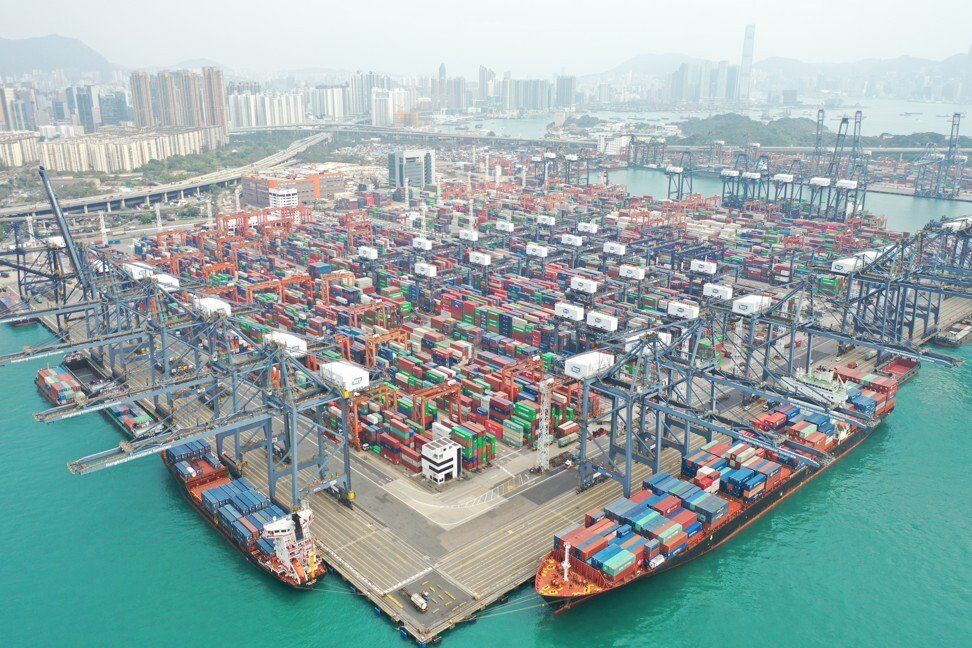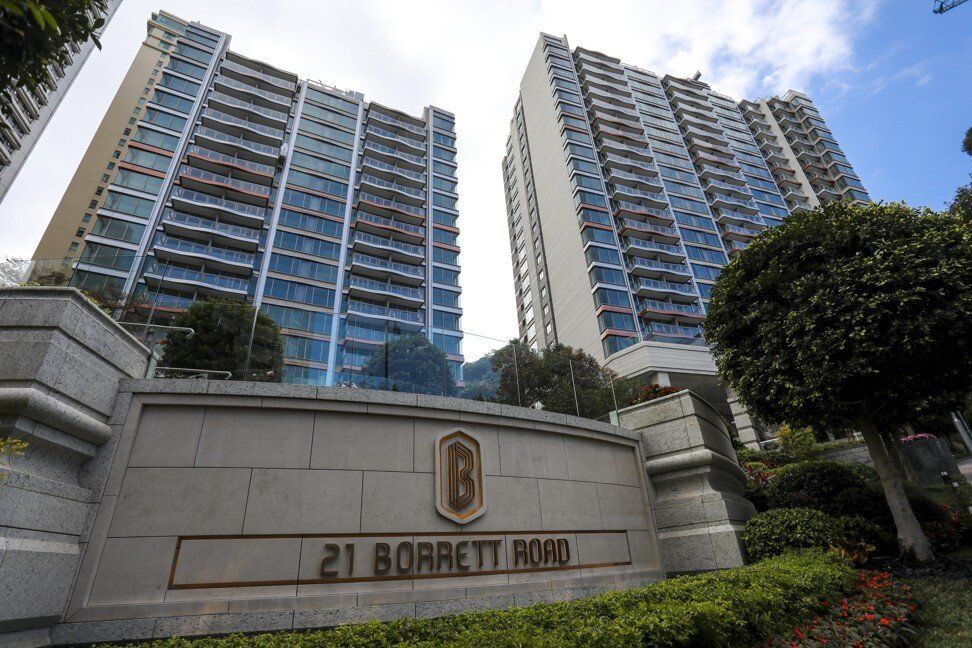The two sets of financial results by one of Hong Kong’s bellwether conglomerates underscore how two successive quarters of economic growth is slowly trickling into corporate earnings, as the city continues to grapple with a recession and record high unemployment wrought by the coronavirus pandemic.
CK Hutchison Holdings and CK Asset Holdings, the two flagship companies of Hong Kong’s richest family, defied naysayers with interim results that beat expectations, as the city’s tentative recovery from its worst recession on record translated to increased spending on everything from groceries to real estate.
Hutchison, the conglomerate with businesses ranging from the world’s ninth-largest container port to the A/S Watsons pharmacy chain, reported a 41 per cent jump in first-half net profit to HK$18.3 billion (US$2.35 billion) while revenue rose 12 per cent to HK$212.4 billion. CK Asset, the city’s second-largest real estate developer by value, said first-half profit increased 30.8 per cent to HK$8.35 billion, while its recognised revenue from property sales shrank 24 per cent to HK$14.8 billion.
The two sets of financial results by one of Hong Kong’s bellwether conglomerates underscore how two successive quarters of economic growth are slowly trickling into corporate earnings, as the city continues to grapple with a recession and record high unemployment wrought by the coronavirus pandemic.
“We are never satisfied with our figures, but it was OK given the pandemic,” said the two companies’ chairman, Victor Li Tzar-kuoi, the elder son of Cheung Kong Group’s founder and patriarch, Li Ka-shing. “Many of our businesses, aircraft [leasing], hotels and pubs are still under a very stressful time, but our assets are quite resilient to various difficult situations and earnings are reliable.”
 (L-R) Tycoon Li Ka-shing with his elder son Victor Li Tzar-kuoi (right)
at CK Asset Holding’s annual dinner in Wan Chai on January 2020.
(L-R) Tycoon Li Ka-shing with his elder son Victor Li Tzar-kuoi (right)
at CK Asset Holding’s annual dinner in Wan Chai on January 2020.
The two companies said they would pay dividends to the legions of shareholders who own their shares owing to their weighting as constituents of Hong Kong’s benchmark Hang Seng stock index. Hutchison will raise its interim dividend by 30 per cent to 80 Hong Kong cents per share, while CK Asset increased its payout by 20 per cent to 41 cents per share.
Shares of both companies were mixed ahead of the after-hours results announcement. Hutchison shares rose 0.1 per cent higher to HK$56.40, while CK Asset closed 1.7 per cent lower at HK$52.50.
 View of Kwai Chung container terminal in Hong Kong on 22 March 2021.
View of Kwai Chung container terminal in Hong Kong on 22 March 2021.
Hutchison’s biggest revenue earner came from retail sales, which rose 12 per cent to HK$82.6 billion in the first six months, helped by the gradual easing of lockdowns, and the resumption of operating hours among its ParknShop supermarkets and Watsons pharmacies.
The company’s container ports posted HK$19.9 billion in sales, rising 24 per cent from last year, as the gradual resumption of global trade and stronger global consumer demand boosted the volume of shipping. Hutchison’s earnings before interest, taxes, depreciation, and amortisation (Ebitda) rose 15 per cent to HK$68.2 billion.
“The ports business had an excellent time during the first half,” said Hutchison’s co-managing director, Canning Fok Kin-ning, during a call with analysts. “Other [segments] were more stable.”
 General view of 21 Borrett Road at The Mid-Levels on 19 January 2021.
General view of 21 Borrett Road at The Mid-Levels on 19 January 2021.
The retail sector was another good performer, with its Ebitda rising 45 per cent to HK$6.73 billion.
Victor Li told analysts in a webcast that shares buy-back and debt reduction were the company’s two major capital allocation focuses, on top of telecoms, retail shops and infrastructure investments.
Hong Kong’s property market has regained its upwards swing in recent months, after fumbling early last year. Still, CK Asset’s first-half real estate income in Hong Kong shrank 90 per cent to HK$609 million, as it did not launch any mass market homes during the period.
The company’s most recent launch was the ultra luxury apartments at the first phase of 21 Borrett Road in Mid-Levels, of which 14 units out of 115 were sold as of June 30. An apartment measuring 3,738 sq ft sold for HK$459.4 million through tender in February, making the complex Asia’s most expensive address by price per square foot.
“The group recorded a lower contribution from property sales in Hong Kong during the period as compared to the same period last year, since the contracted sales of various projects had not yet been recognised,” CK Asset said.
Revenue from hotels and serviced apartments increased 20 per cent to HK$1.19 billion, as Hong Kong’s hospitality industry made a tentative recovery from the effects of the Covid-19 pandemic.
Average occupancy at the Harbour Grand, Harbour Plaza hotels and resorts edged up to 30 per cent in the first half, from 20.1 per cent at the end of last year.
“Once the pandemic eases, our quality asset will show solid returns,” Li said. “I’ve gone through Sars [the Severe acute respiratory syndrome outbreak of 2003] and I remember the tough time and the lessons learned: it [eventually] went away, tourists came back and business recovered.”















